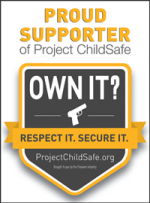Heather Mac Donald authored
this Wall Street Journal Op/Ed over the weekend that starts:
The nation’s two-decades-long crime decline may be over. Gun violence in particular is spiraling upward in cities across America. In Baltimore, the most pressing question every morning is how many people were shot the previous night. Gun violence is up more than 60% compared with this time last year, according to Baltimore police, with 32 shootings over Memorial Day weekend. May has been the most violent month the city has seen in 15 years.
Dr. John Lott
took exception to her claim on the Crime Prevention Research Center's web site and states Mac Donald's choice of words amounted to trying to scare the nation about crime. Lott goes on to post the numbers for the nation's 15 largest cities as well as links to data for Baltimore and DC then notes:
The bottom line is that across the largest 15 cities in the US the murder rate has fallen by 43 from 871 to 828, a 5% drop.
I heard Ms. Mac Donald when she appeared on Bill Bennett's
early morning talk show today to discuss her article. In that interview she barely mentioned the part of about "spiraling gun crime" and focused on the article's larger point, that the polices of the Obama Administration and former AG Eric Holder have caused police to do their job differently, with negative effects:
President Obama and Attorney General Eric Holder, before he stepped down last month, embraced the conceit that law enforcement in black communities is infected by bias. The news media pump out a seemingly constant stream of stories about alleged police mistreatment of blacks, with the reports often buttressed by cellphone videos that rarely capture the behavior that caused an officer to use force.
Almost any police shooting of a black person, no matter how threatening the behavior that provoked the shooting, now provokes angry protests, like those that followed the death of Vonderrit Myers in St. Louis last October. The 18-year-old Myers, awaiting trial on gun and resisting-arrest charges, had fired three shots at an officer at close range. Arrests in black communities are even more fraught than usual, with hostile, jeering crowds pressing in on officers and spreading lies about the encounter.
This has caused what is known as the Ferguson effect:
This incessant drumbeat against the police has resulted in what St. Louis police chief Sam Dotson last November called the “Ferguson effect.” Cops are disengaging from discretionary enforcement activity and the “criminal element is feeling empowered,” Mr. Dotson reported. Arrests in St. Louis city and county by that point had dropped a third since the shooting of Michael Brown in August. Not surprisingly, homicides in the city surged 47% by early November and robberies in the county were up 82%.
Similar “Ferguson effects” are happening across the country as officers scale back on proactive policing under the onslaught of anti-cop rhetoric. Arrests in Baltimore were down 56% in May compared with 2014.
“Any cop who uses his gun now has to worry about being indicted and losing his job and family,” a New York City officer tells me. “Everything has the potential to be recorded. A lot of cops feel that the climate for the next couple of years is going to be nonstop protests.”
The point of her article was that policies being pushed by the left (and from
some on the right) like decriminalization and deincarceration may have dire consequences, especially for those they are supposed to be benefiting, if they backfire. She probably could have made the same point without the sensational comment about a "spiraling" increase in gun related crime.








No comments:
Post a Comment